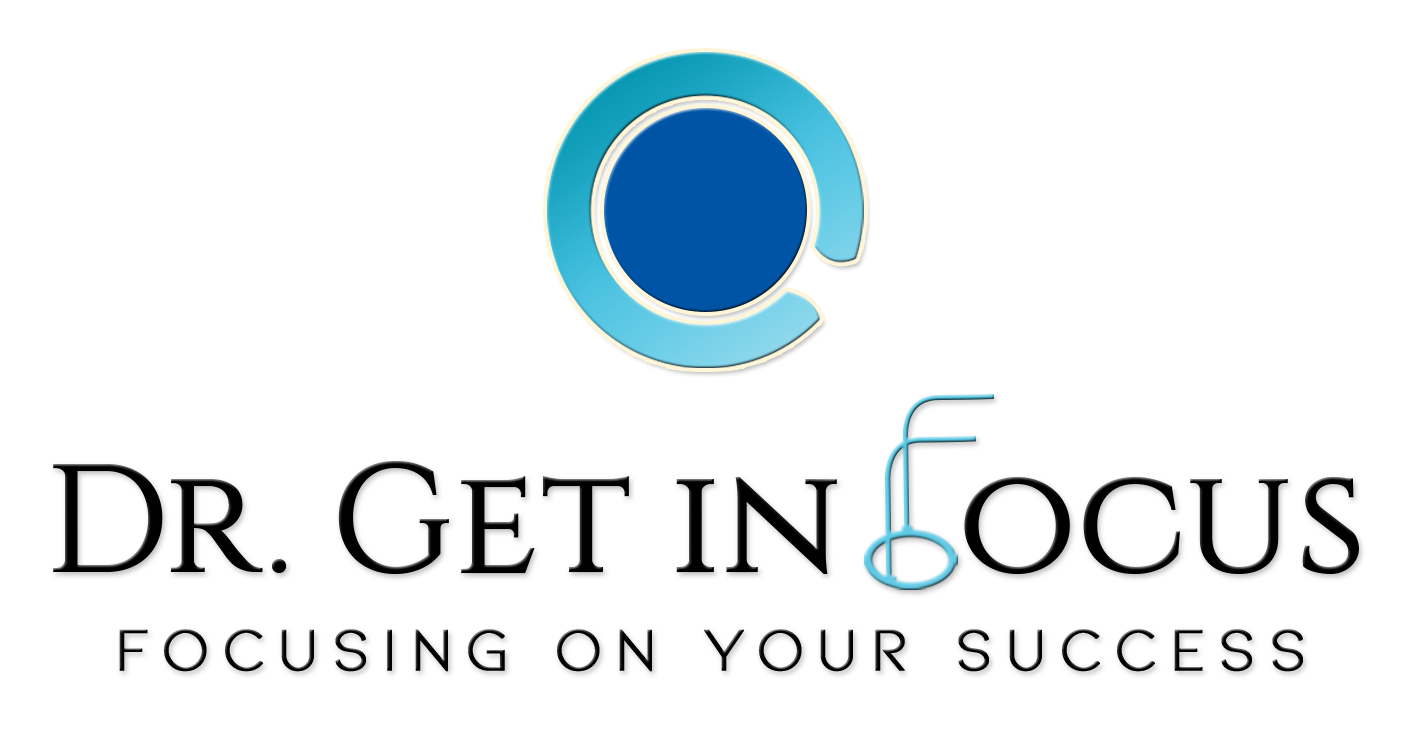5 Incredible Ways ADHD and Quantum Theory Unleash Your Powerful Focus

I know what you’re asking yourself, “Dr. Jeff, are you really using ADHD and Quantum Theory in the same sentence?” Well, let me ask you, are you wrestling with attention deficit hyperactivity disorder (ADHD)? Does it sometimes feel like you’re a particle spinning in ten places at once? Well, folks, perhaps you’re more in tune with the universe than you think! Let’s take a quirky dive into Quantum Theory and uncover strategies for amplifying your focus and optimizing your life with ADHD. Trust me on this one, and I will tell you momentarily! Quantum Theory, the science that dictates the very small, suggests particles can be in multiple places simultaneously. This concept, known as “superposition,” might sound like an excerpt from a science fiction novel. However, the quantum world is weirdly similar to the experience of having ADHD, thus the correlation between ADHD and Quantum Theory. You also can read a blog that explain ADHD Entrepreneur Strategies to Change the World. What is ADHD and Quantum Theory In the world of ADHD, your mind often feels like it’s in a state of superposition. One moment, you’re engrossed in writing an email. The next, you’re pondering the ingredients of your lunch, your favorite song is playing in your head, and you’re considering the likelihood of alien life. You’re not just multitasking—you’re omni-tasking. However, here’s the game-changer. Instead of viewing your superpositioned mind as a flaw, what if you saw it as a superpower? Embracing your ability to simultaneously hold multiple trains of thought can lead to greater creativity and unique problem-solving approaches. It’s about transforming the so-called ‘chaos’ of ADHD into a symphony of productive thinking. ADHD and Quantum Theory could be a very effective quantum entanglement But the quantum realm offers more than just superposition. Meet “quantum entanglement,” where a change to one particle instantly affects its entangled partner, regardless of the distance between them. Don’t worry; we’re not suggesting you go out and start entangling with everyone you meet—that’s a different kind of chaos! Instead, consider this. When you understand that your actions—like when you get distracted and miss deadlines—can impact others, you’ll naturally develop better strategies to manage ADHD. Think of it as “empathetic entanglement.” In this quantum-inspired state, you’ll foster healthier relationships while improving focus and productivity. Moreover, Quantum Theory espouses infinite potential, the backbone of quantum computing. These advanced machines don’t just see data as 0s or 1s—they embrace the quantum state of superposition, thereby crunching vast amounts of data at warp speed. Now, that’s a serious upgrade to the garden-variety binary computer! Likewise, ADHD can feel like you’re operating with a quantum brain. It might seem overwhelming to process the whirlwind of thoughts, ideas, and sensations that hit you. Still, it also indicates your exceptional mental agility and flexibility—highly valuable traits in this fast-paced, ever-changing world. So, if ADHD and Quantum Theory teaches anything, it’s that being different is not only okay—it’s extraordinary. The universe operates on principles that would seem impossible in our day-to-day lives. And guess what? So does an ADHD brain. Embracing your inner quantum weirdness can revolutionize how you handle ADHD. By harnessing the principles of Quantum Theory, you can redefine what it means to focus, unlocking your potential to thrive in the quantum—and ADHD—world. 5 incredible ways that ADHD and Quantum Theory So let’s break down these 5 incredible ways that ADHD and Quantum Theory can work together to make magic. Hey, could that be a quantum entanglement? Sure, let’s break down those five surprising ways: 1. Embracing Superposition: Similar to particles that can exist in many states at once, learning to harness the hyperactive mind of ADHD, which can juggle multiple thoughts, can lead to greater creativity and innovation. 2. Empathetic Entanglement: Drawing from quantum entanglement, understanding how our actions impact others around us (such as missed deadlines) can help manage ADHD symptoms and foster stronger relationships. 3. Quantum Computing Model: Emulating the principles of quantum computing, seeing the ADHD brain as capable of handling vast amounts of information simultaneously can highlight its strengths and potential rather than its limitations. 4. Infinite Potential: Just as Quantum Theory posits endless possibilities, recognizing the limitless potential within an ADHD brain can shift perceptions and drive personal growth. 5. Thriving in Chaos: Quantum Theory is inherently chaotic, and so is the ADHD mind. Embracing this chaos and transforming it into a productive force can redefine the meaning of focus and attention in the context of ADHD. Each of these points harnesses the power of “ADHD and Quantum Theory” to redefine focus and thrive amidst what may initially seem like chaos. This makes them not just incredible but downright quantum! After all, in a universe where particles can be in multiple places at once, who’s to say that you, with your vibrant, dynamic ADHD brain, can’t juggle a million things and still nail your goals? Quantum Theory and ADHD: It’s a match made in the multiverse! You may be asking yourself at this point about how the link between ADHD and Quantum Theory is relative to your life. So at this point, its time for me to pitch my Get in Focus Challenge If you have read this far, doncha think there may be a quantum entanglement somewhere? Click the link, I’ll help you to get in focus and skyrocket your productivity. I’ve mad it really affordable so that everyone can do it (just don’t tell my wife!). You can just click here, and bingo! Get In Focus VA
14 Keys to Success: Alice’s Journey in Overcoming Adult ADHD with the Dr Get in Focus MBA Program

Alice’s Journey: For our tale in Overcoming Adult ADHD, We now return to the tale of Alice, from Alice in Focusland, a single mother and entrepreneur in the heart of San Francisco was grappling with two uninvited companions: Adult ADHD and Rejection Sensitive Dysphoria (RSD). Much like an uncomfortable pair of wet socks, they clung to her, creating constant obstacles in her life and business. Overcoming Adult ADHD Everything changed when Alice discovered the Dr Get in Focus Mindset, Behavior, Accountability (MBA) Program. This three-month intensive coaching program, designed specifically for Overcoming Adult ADHD, this program armed Alice with 14 crucial factoids overcoming Adult ADHD to achieve entrepreneurial success. Factoid 1: The ADHD Strengths. Alice learned that ADHD could offer unique strengths such as heightened creativity, adaptability, and innovative thinking. This perspective shift was empowering and transformed her mindset. Factoid 2: The Power of Mindfulness. Alice discovered that practices like yoga and meditation could help her stay present and focused, which increased her resilience and mental agility. Factoid 3: Regular Exercise. Physical activity could improve concentration. Alice implemented a consistent workout routine, resulting in enhanced focus and reduced restlessness. Factoid 4: Diet Matters. Alice learned about the brain-healthy foods rich in omega-3 fatty acids, and overhauled her diet, boosting her cognitive function. Factoid 5: Importance of Sleep. Alice prioritized a consistent sleep schedule and created a peaceful sleep environment, understanding the significant impact of sleep on cognitive function. Factoid 6: Productivity Tools. Alice began using the Pomodoro timer and Kanban boards to enhance her focus, manage her tasks effectively, and minimize distractions. Factoid 7: The Power of Accountability. By sharing her journey with her close circle, Alice created a strong sense of accountability, reinforcing her motivation to implement her strategies and succeed. Factoid 8: Managing Rejection Sensitivity. Alice applied techniques from the MBA Program to manage her RSD effectively. She learned to identify emotional triggers and developed healthier responses to perceived rejections. Factoid 9: Embrace Neurodiversity. Alice accepted her neurodiverse status, using her unique neurological wiring to her advantage, especially in her entrepreneurial journey. Factoid 10: Clear and Organized Workspace. Alice realized that a clutter-free environment could significantly enhance her productivity. She decluttered and organized her workspace for optimal efficiency. Factoid 11: Break Tasks into Manageable Chunks. Alice learned to use the Pomodoro technique to break her tasks into manageable intervals, boosting her productivity and reducing feelings of overwhelm. Factoid 12: Utilize Visual Planning Tools. Alice embraced visual planning tools like Kanban boards to keep track of her tasks and deadlines. This helped her stay organized and focused on her goals. Factoid 13: Cultivate a Strong Support Network. Alice shared her challenges and strategies with her loved ones, which not only gave them better insight into her journey but also provided her with much-needed emotional support. Factoid 14: Self-compassion and Patience. Alice learned the importance of being kind to herself. She understood that progress takes time and requires patience, which helped her stay motivated during challenging times. Equipped with these 14 factoids, Alice experienced a notable transformation in Overcoming Adult ADHD. She no longer saw ADHD and RSD as obstacles but as manageable aspects of her life. These strategies empowered her to turn her challenges into stepping stones to success. Alice’s journey is a testament to the transformative potential of the Dr Get in Focus MBA Program, illuminating the path to success for others. Now for the really good news, You to can embark on your journey in overcoming adult ADHD! The Dr. Get in Focus MBA Program is not a good fit for everyone but you should definitely check it out: Dr Get in Focus MBA Program
